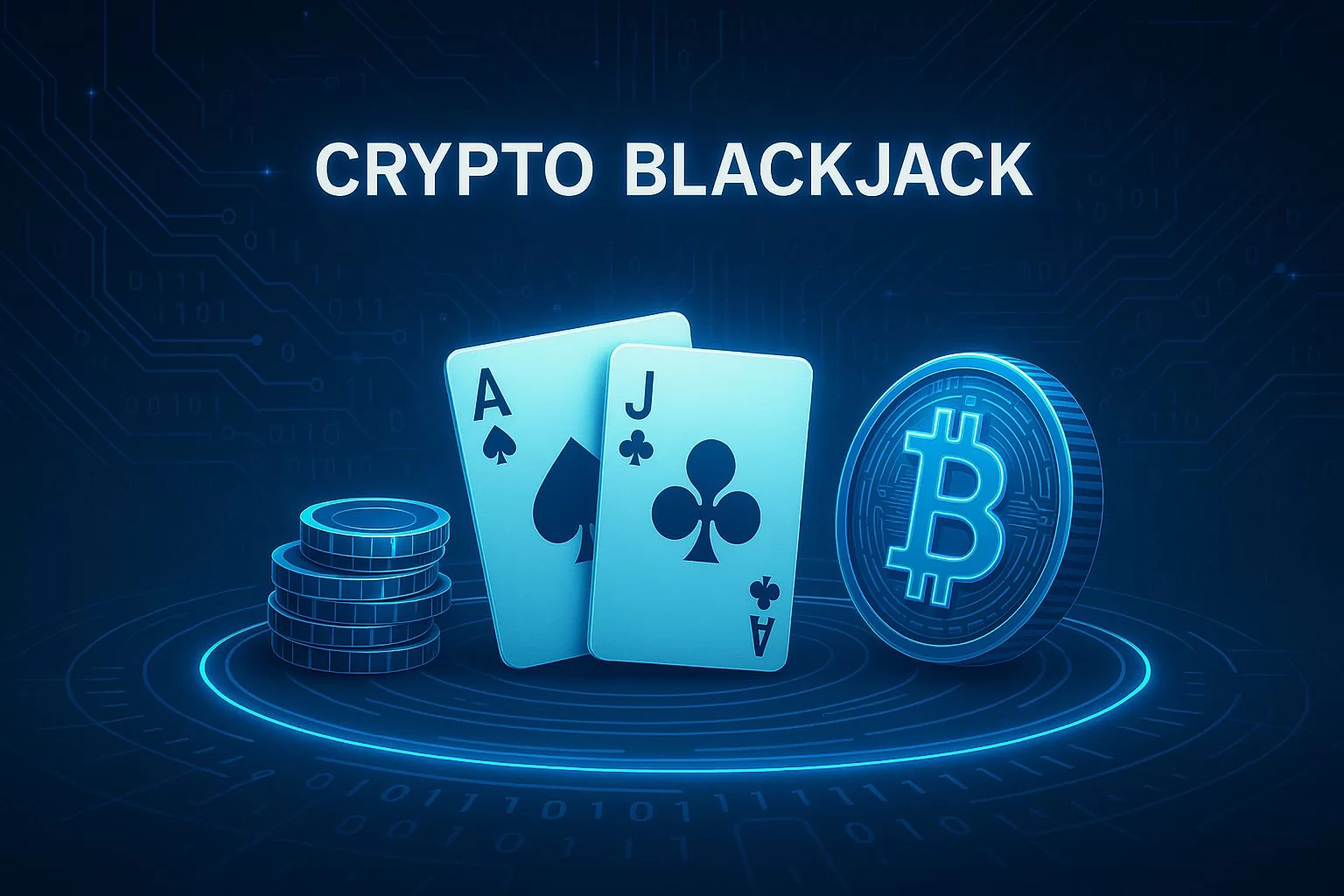Description: Explore how blockchain technology is reshaping the way we play blackjack, blending transparency, security, and crypto rewards.
The digital era has transformed everything from how we shop to how we socialize — and now it’s reshaping how we gamble. Card games, once bound to smoky back rooms and neon-lit casinos, are finding new life online. But this time, there's a twist: blockchain technology is dealing the cards. With its decentralized nature, blockchain introduces a whole new layer of trust and innovation to classic games. It shifts the power dynamics from institutions to individuals, opening up access in unprecedented ways. And as global interest in crypto rises, even casual players are starting to pay attention.

Blackjack, one of the most beloved and enduring card games, is at the forefront of this change. With its simple rules and fast-paced action, it’s an ideal testing ground for blockchain’s promise of decentralization, fairness, and transparency. So, what happens when you combine blackjack with crypto? You get a unique hybrid where technology meets tradition. Players aren’t just gambling—they’re participating in a tech revolution. And that revolution is starting to ripple through the entire online gaming industry.
What Is Crypto Blackjack?
Crypto blackjack works just like the traditional game — aim for 21 without busting — but it's powered by blockchain technology and cryptocurrencies instead of fiat money. Players use Bitcoin, Ethereum, or other digital coins to place bets, and the game outcomes are recorded on decentralized ledgers. This removes the need for intermediaries, such as banks or payment processors. It also ensures that transactions are faster, cheaper, and less prone to interference. For users in countries with limited financial infrastructure, this can be a game-changer.
Many platforms even use provably fair algorithms. These cryptographic systems allow players to verify that the outcome of each hand is genuinely random and hasn’t been tampered with. It’s a level of transparency unheard of in traditional online casinos. This approach builds trust between the player and the platform.
Why Blockchain?
Blockchain brings a few core benefits to the table:
1. Transparency
Every card dealt and every transaction is recorded on an immutable ledger. That means no shady dealings behind the scenes. Players can independently verify every round, which increases confidence in the platform. This eliminates the reliance on blind faith or third-party audits. The open nature of blockchain means even developers can’t secretly rig the game.
2. Security
Funds are stored in smart contracts, not casino-controlled wallets, reducing the risk of theft or manipulation. These contracts execute automatically, minimizing human error. They’re also immutable, which means they can’t be changed after deployment. For players, this translates into peace of mind and financial control.
3. Speed and Accessibility
With no need for banks, players across the globe can jump in with nothing but a crypto wallet and a browser. That means more people can participate, including those in underserved or high-barrier markets. It also eliminates wait times for deposits or withdrawals. For global audiences, this could democratize access to games once reserved for the elite.
4. Anonymity
Most crypto blackjack sites require no personal info, offering a privacy-first experience. For users concerned about surveillance or data breaches, this is a major plus. It also sidesteps the need for lengthy KYC processes. In regions where gambling is restricted, anonymity becomes not just a preference but a necessity.
From Fringe to Mainstream
What started as a niche for crypto enthusiasts is now catching the eye of mainstream gamblers. Sites like Stake, BC.Game, and FortuneJack have seen explosive growth, partly due to the appeal of crypto bonuses, instant withdrawals, and the sense of fairness baked into the code. These platforms have also invested heavily in user experience, offering sleek interfaces and mobile-friendly play. They've partnered with influencers, run viral campaigns, and even sponsored major events. This crossover appeal is drawing in both gamers and investors.
It’s also become part of a larger trend — the gamification of finance. As DeFi and play-to-earn models blur the lines between gaming and investing, crypto blackjack stands right at that intersection. It’s no longer just about winning a hand; it’s about being part of an ecosystem. That ecosystem might include governance tokens, revenue-sharing, or leaderboard competitions. It’s a paradigm shift from passive gambling to active participation.
Regulatory Roulette
Of course, this brave new world isn’t without risk. The decentralized nature of blockchain gaming raises questions for regulators. Without clear oversight, players can be exposed to unlicensed platforms, scams, or unfair odds disguised as innovation. It’s a delicate balance between innovation and consumer protection. Regulators are playing catch-up as the tech moves faster than the law. For now, users must navigate this space with heightened caution and awareness.
Some countries have started clamping down, while others explore how to license and tax these new formats. Jurisdictions like Malta and Curacao are already offering crypto casino licenses. Others, like the U.S. and China, are taking a stricter stance. The lack of global consensus creates uncertainty for platforms and players alike. Still, legal clarity could pave the way for wider adoption.
The Tech Behind the Table
Most crypto blackjack platforms and Arab casinos rely on smart contracts and oracles. The smart contracts handle bet execution and payouts automatically. Oracles, meanwhile, serve as trusted data feeds that bring external randomness into the blockchain — vital for ensuring fairness. Without oracles, truly random results would be impossible on deterministic blockchains. Their role is especially critical in multi-player games. Reliability and decentralization of oracles are ongoing challenges for the industry.
Projects like Chainlink and Provably Fair APIs help inject that needed unpredictability. And because everything is open-source, the tech-savvy can inspect or even audit the games themselves. This encourages community trust and fosters innovation. Transparency becomes a marketing asset rather than a burden. As the technology matures, expect even more sophisticated systems to emerge.
Rewards, Risks, and Real Money
Crypto blackjack doesn’t just mimic the real-world game; it enhances it. Daily jackpots, tokenized loyalty programs, and NFT achievements are common perks. These features turn casual gambling into a richer experience, almost like leveling up in a video game. Gamification increases retention, giving players more reasons to return. It also builds a sense of community through challenges and rankings. The line between entertainment and investment continues to blur.
But crypto’s volatility can be a double-edged sword. Win big today, lose value tomorrow if your coin crashes. Some platforms combat this by allowing stablecoin bets, pegging winnings to the dollar. Others offer instant swaps into stable assets post-game. Volatility management tools are becoming a must-have. Players should always assess their risk tolerance before diving in.
What’s Next?
As blockchain tech continues to evolve, so too will its applications in gaming. We’re already seeing experiments with fully decentralized casinos, DAOs voting on house rules, and AI dealers trained on blockchain-based decision trees. These developments are breaking down traditional barriers. Soon, anyone with a smartphone could launch their own table. And governance models may shift power from operators to communities.
In the near future, we might see cross-platform wallets, augmented reality blackjack, or even community-owned tables where profits are shared among token holders. The possibilities are vast and largely unexplored. Startups are racing to innovate in this space. Expect more synergy with metaverse platforms and virtual reality soon.
The future of card games isn’t just digital — it’s decentralized, transparent, and in the hands of the players. This democratization is rewriting the rules of engagement. It’s not just about entertainment anymore — it’s about empowerment. And players are no longer just customers; they’re stakeholders.
Final Thoughts
Crypto blackjack may still be in its early days, but it’s already proving to be more than a novelty. It offers a fresh take on a classic game, blending the thrill of gambling with the innovation of blockchain. As adoption grows, so does the pressure to improve design, security, and user education. The community is evolving from early adopters to a broader, more diverse base. And platforms that adapt will thrive.
Whether you’re a crypto native or just blackjack curious, one thing’s clear: the cards are on the table, and the game is changing fast. The next hand could redefine the whole experience. And if blockchain keeps its momentum, the house might never win the same way again.




